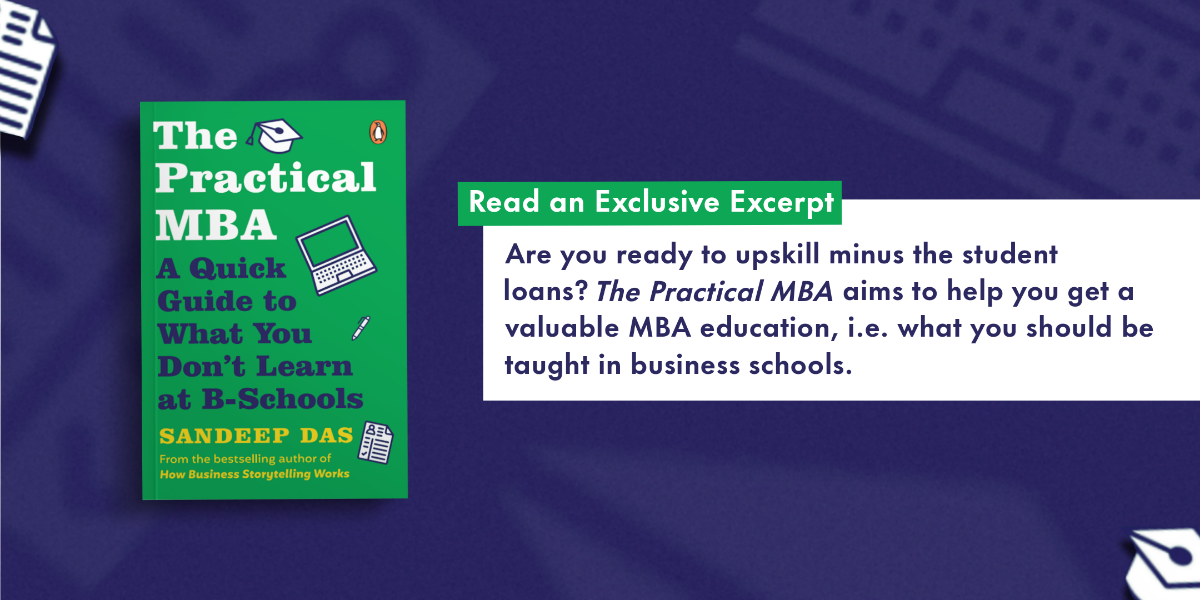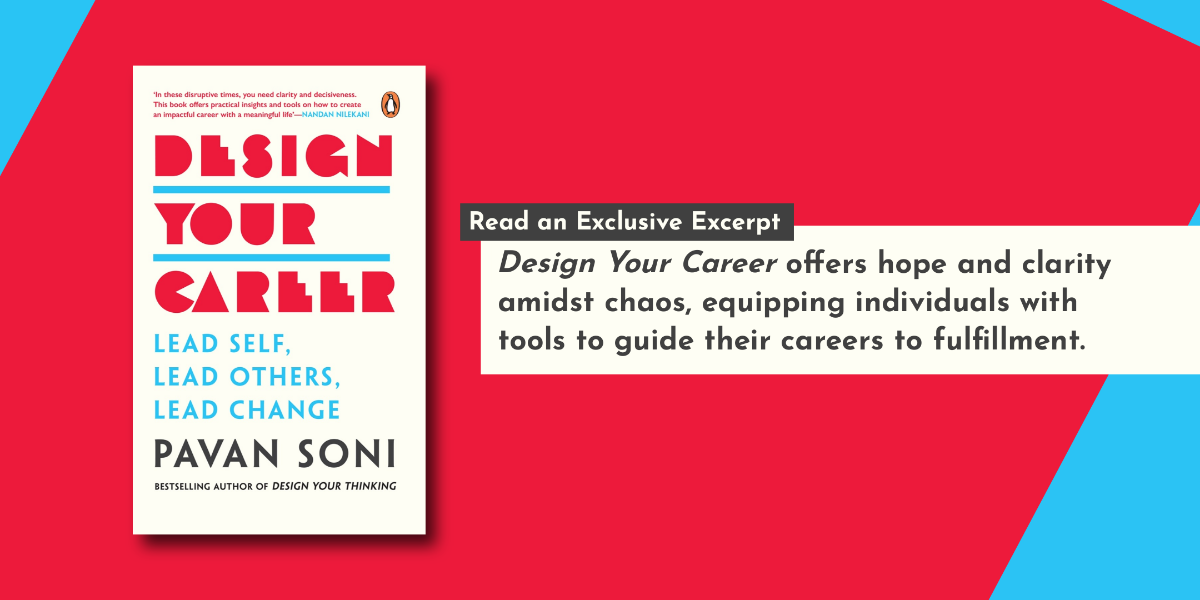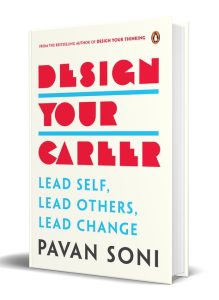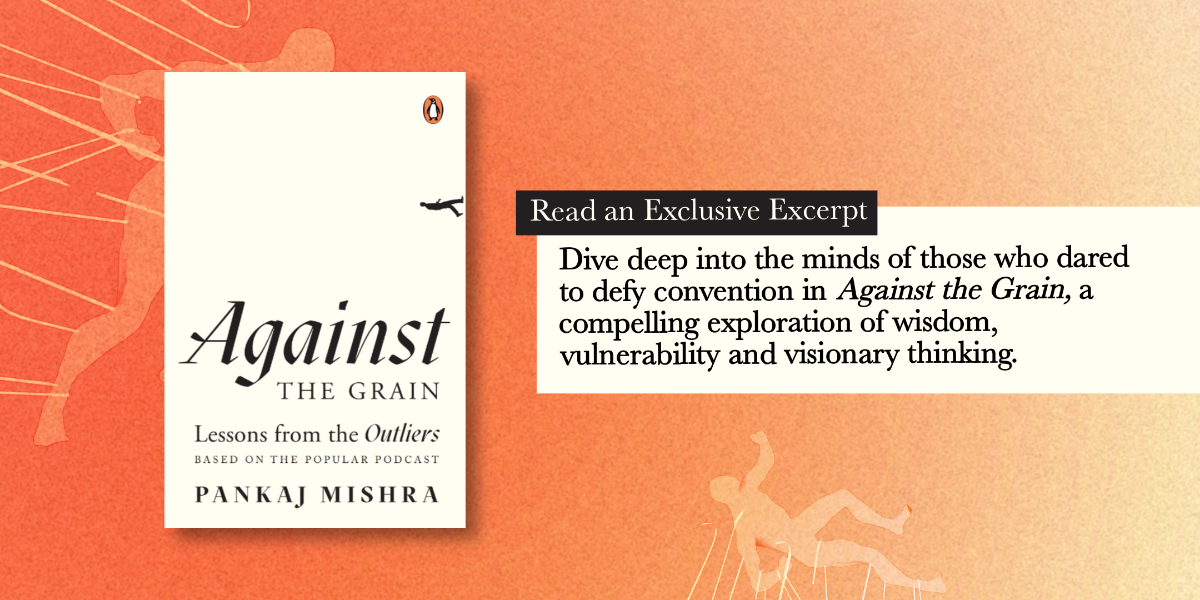Ever felt like your MBA classes were preparing you more for a trivia night than the boardroom? Enter The Practical MBA by Sandeep Das — the book that bridges the gap between textbook theory and real-world hustle. From decoding the characters known as ‘Corporate Fekus’ to mastering the skills that truly count in the real business world, this book is your crash course in surviving (and thriving) in today’s cutthroat corporate jungle.
Read this exclusive excerpt to learn how to outwit the office ‘Fekus’ and turn your career into a blockbuster!

***
Raghavan, a senior professional, seems to be successful at work but poke a level down—there seems to be distrust in his team with consistent underperformance, stress and a deep sense of misery at his place of work. However, his bosses absolutely love him.
Welcome to the age of the Corporate Feku.
It is never easy to work with someone who is always building a narrative, either to hide his underperformance or put someone down or to overcome a deep sense of personality complex. The associated stress, shame, guilt and general misery can be overwhelming for most people. However, such people tend to be successful at their place of work. They are blessed with deep political acumen along with the right blend of sociopathic and narcissistic attributes. Following are some key traits of the Corporate Feku.
1. Always Builds a Narrative, Often a Fake One
The Corporate Feku barely performs on most business metrics. However, what they are good at is elevating their role and positioning it as something very big. They will often associate their roles with words including radical, industry defining, path breaking, transformative, undoing years of poor work. In addition, before every critical board meeting, they are capable of building a fake narrative of a beautiful future to take people’s attention away from the existing gloom and doom.
2. Always Creates the Right Impression
In addition to building a fake narrative, a tactic that is often employed by the Corporate Feku is to carefully manage his own impression. The age-old adage of coming five minutes before your boss and leaving five minutes after your boss is carefully implemented. In addition, there is a conscious display of rigour when very senior professionals are involved. When his bosses are around, the day starts at 7 am and goes well until midnight. When nobody seems to be around, Pooja Hegde’s pictures on Instagram are consciously devoured over.
.3. No Respect for Diversity
The Corporate Feku will drive to ascertain domination in the area of thought leadership. Whatever idea or efficiency improvement his team or his peers might come up with, he will always retort with a ‘I had already thought of it earlier’. It is an altogether different problem that very little seems to have been done by him to take care of that idea. An associated corollary employed by the Corporate Feku is the lack of respect for women. Although they will proclaim themselves to be champions of gender diversity, they will often pass snide comments about their make-up, facial expressions, lack of seriousness, dressing sense, waistlines.
4. Psychologically Manipulates His Team Every Day
The Corporate Feku, blessed with a high emotional quotient and sociopathic skills, is immensely competent at manipulating his people to work for him without question. A combination of shaming, humiliation, putting people down along with an occasional praise is generously employed to make his people always seek validation for themselves. The classical behavioural psychology that is often employed is the Stockholm syndrome, where the victim tends to sympathize and cheer on his/her perpetrator. One of the most common ways to shame people is to ask them to do a job which is 2–3 levels below their hired level. Another way to drive requisite behaviour is to reward people who blindly support you even if they are underperformers.
5. No Respect for Anybody’s Personal Life
A narrative that elevates the Corporate Feku’s job is built on making his team work brutal hours. Most of the Corporate Feku’s team would be working very long hours with limited personal downtime. Such a conscious creation of work and never-ending reviews is carefully crafted to create a perception of industry defining work to everybody else. The focus is often on quantity of work rather than an element of quality or efficiency. In case of any grievance aired, the retort
is immediate, ‘when I was your age, I would only work and do nothing else.’
6. Creates Interpersonal Tension in His Team
The way to build incredible loyalty among disgruntled emotionally manipulated workers is to create interpersonal tension within them. In case a direct subordinate doesn’t agree to your targets allocated, call up the subordinate’s subordinate and get him to say yes. Then force the subordinate to agree and give him feedback on his people management skills that people under him are extremely unhappy and have complained against him. An additional way is to say something controversial about a team member in someone else’s presence and if he diplomatically avoids it, consciously play that comment in that teammate’s name on other public forums.
In behavioural psychology, such animalistic behaviour stems from deep-rooted inferiority complex, either due to a lack of formal education or a ghastly firing from the previous job. The ruckus at work is carefully crafted as a conscious display of power. This behaviour can go on for decades without any check or balance. It is difficult for companies to diagnose or counsel such behaviour especially in countries like India where upward feedback is largely symbolic. However, the best course of action for any company is to relieve such characters once they have been suspected of such behaviour.
In case you are stuck working with someone who resembles the above character sketch, may God bless you. The Corporate Feku is singlehandedly responsible to build a work culture which is bland at best and toxic at worst.
***
Get your copy of The Practical MBA by Sandeep Das on Amazon or wherever books are sold.











